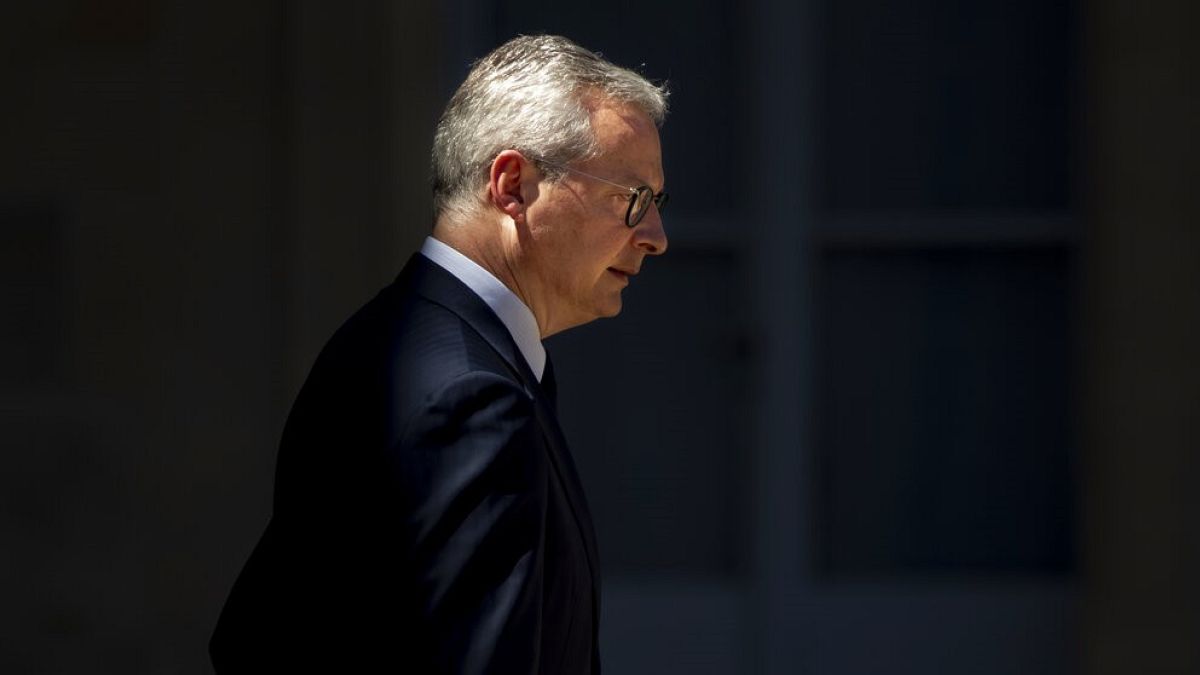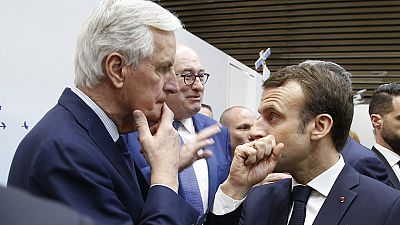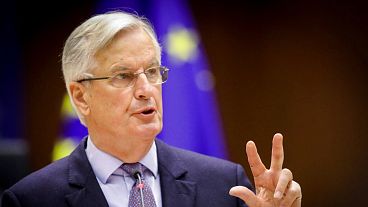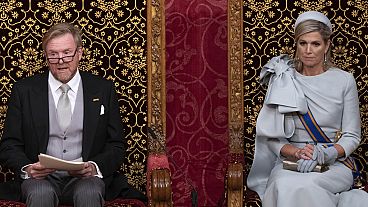Bruno Le Maire says his goodbyes two months after the shock result of France's legislative elections, which has left a cloud of uncertainty over the country's economy.
France's Finance Minister Bruno Le Maire stepped down from his role and reiterated his intention to leave politics on Thursday.
"My dear friends, I am leaving. As Michel Sardou would say, I love you, but I am leaving," Le Maire told 1,200 people gathered for his farewell address.
Appointed as finance minister more than seven years ago, The Republicans politician has navigated stormy waters during his time in office — notably battling against France's budget deficit.
In 2023, France's public sector budget deficit widened by more than the government had planned, showing a fiscal shortfall of 5.5% of economic output.
That's significantly more than the government's target of 4.9% and can be explained by France's low growth figures and reduced tax revenue.
Speaking earlier this year, Le Maire noted: "State finances must be readjusted ... that will require a great deal of determination, strategy, and composure."
Credit rating agency S&P downgraded France's score at the end of May because of the country's deficit, signalling that French bonds had become more risky.
This is the first downgrade France had seen since 2013.
Fiscal stability 'against the waltz of taxes'
Le Maire's intentions to get state finances back on track have nonetheless been upset by France's recent legislative elections.
With 182 seats, the far-left New Popular Front (NFP) party emerged with the largest share of the votes. The Ensemble party of centrist President Emmanuel Macron and Bruno Le Maire, which secured 168 seats, came in second. The far-right National Rally party and allies, meanwhile, bagged 143 seats.
Given the failure of any party to secure an absolute majority, France's political course is uncertain.
Macron has now named conservative Michel Barnier as the country's new prime minister, although Barnier has yet to form a government.
France will have a new government "next week," Barnier said this Wednesday, although NFP leaders have vowed not to support any government not headed by them.
In his farewell speech, Le Maire thanked ministers who had worked alongside him during his time as finance minister.
"Against the waltz of taxes, we have chosen fiscal stability, against the downgrading of the middle classes, we have revalued work, against mass offshoring, we have initiated the reindustrialisation of our regions, against criticism of France, we have made France the most attractive nation in Europe," he said on Thursday.















